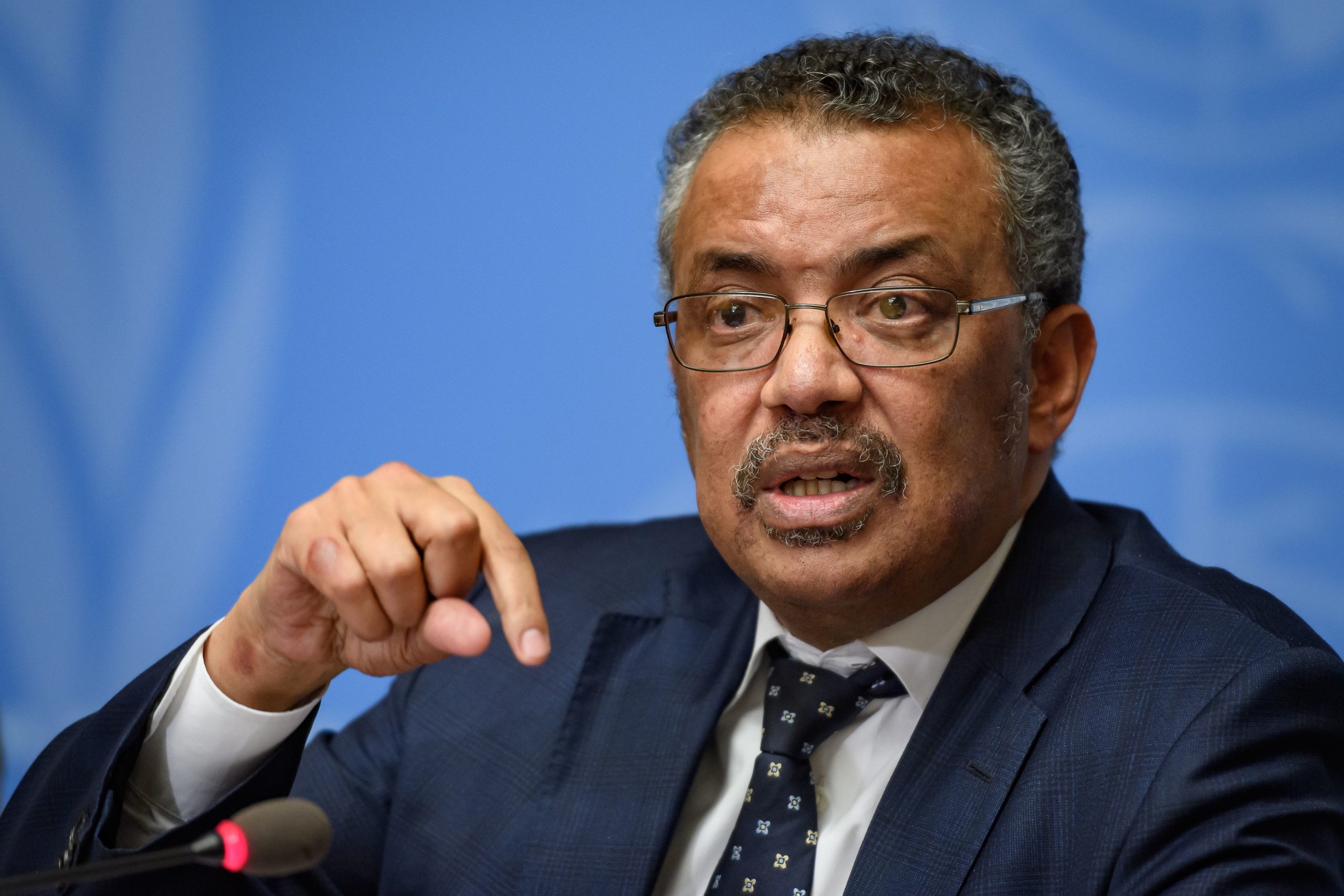The World Health Organization is turning to other countries to help fill any gaps in financing its Covid-19 response work after U.S. President Donald Trump said the United States would withhold contributions.
“The United States of America has been a long-standing and generous friend to the WHO and we hope it will continue to be so,” WHO Director-General Dr. Tedros Adhanom Ghebreyesus said at a press conference on Wednesday. “We regret the decision of the President of the United States to order a hold in funding to the World Health Organization.”
Trump announced Tuesday that the U.S. will suspend funding to WHO while it reviews the agency’s response to the Covid-19 pandemic. He said the administration will conduct a “thorough” investigation that should last 60 to 90 days.
Trump criticized the international agency’s response to the outbreak at a White House press conference, saying “one of the most dangerous and costly decisions from the WHO was its disastrous decision to oppose travel restrictions from China and other nations” that Trump imposed early on in the outbreak.
In the fiscal year 2019, the U.S. provided about $237 million as well as an additional $656 million in voluntary contributions to the agency, according to a WHO spokesperson, representing about 14.67% of its total budget.
It’s unclear exactly what mechanism Trump intends to use to withhold WHO funding, much of which is appropriated by Congress. The president typically does not have the authority to unilaterally redirect congressional funding.
One option might be for Trump to use powers granted to the president under the Impoundment Control Act of 1974. Under this statute, the president may propose to withhold congressional funds, but it requires congressional approval within 45 days. Absent this approval, the funds must be returned to their original, congressionally mandated purpose after 45 days.
In a statement Wednesday, Democratic House Speaker Nancy Pelosi called Trump’s decision “dangerous, illegal and will be swiftly challenged.”
“The president’s halting of funding to the WHO as it leads the global fight against the coronavirus pandemic is senseless,” she said. “We can only be successful in defeating this global pandemic through a coordinated international response with respect for science and data.”
Tedros said Wednesday that the agency’s mission is to work with all nationals “equally” without regard to their populations or economy. He said the agency’s performance in handling the pandemic will be reviewed by member states to ensure “full transparency and accountability.”
“For that matter, involving all responders, this is part of the usual process put in place by our member states,” he said. “No doubt areas for improvement will be identified and there will be lessons for all of us to learn, but for now our focus, my focus, is on stoping this virus and saving lives.”
Tedros said WHO is not only fighting the coronavirus, adding the agency is working to address “polio, measles, malaria, ebola, HIV, TB, malnutrition, cancer, diabetes, mental health and many other diseases.”
“This is a time for all of us to be united in our common struggle against a common threat, a dangerous enemy,” he said.
The coronavirus, which emerged in Wuhan, China over three months ago, has infected 2 million people worldwide and killed at least 128,886 as of Wednesday, according to data compiled by Johns Hopkins University.
WHO started sounding the alarm on the outbreak of a new coronavirus in China, in mid-January, designating the now Covid-19 pandemic as a global health emergency on Jan. 30 when there were just 8,200 cases in 18 countries across the world.
The WHO’s global emergency declaration on Jan. 30 was nearly a month before Trump tweeted that “The Coronavirus is very much under control in the USA” and six weeks before he declared a national emergency on March 13.
Two days earlier, on March 11, WHO officials declared the outbreak a pandemic, when there were just 121,000 global cases.
–CNBC’s Christina Wilkie contributed to this report.
